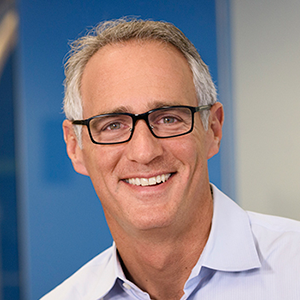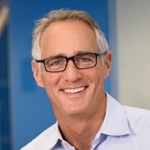
05 Jul Interview with Michael Pellini of Section 32

Dr. Pellini is Managing Partner of Section 32, a venture fund that invests in companies and inventors that are changing the way humans use technology and the way technology betters humanity. Previously, he served as CEO of Foundation Medicine (NASDAQ:FMI) from May 2011 until he transitioned to Chairman in February 2017. He currently serves as a member of the Board of Directors for Tango Therapeutics, Singular Genomics, Adaptive Biotechnologies, the Personalized Medicine Coalition, and the Mission Hospital Foundation, in addition to his Board Chair position with Foundation Medicine. Read his full bio.
Q&A with Michael Pellini of Section 32
Q: How do you select startup companies you invest in? What are values you are looking for both in the companies and the leadership teams?
A: This answer is more of a philosophical one rather than a simple listing of ingredients, even though the latter might be easier or more reassuring for an entrepreneur to digest. Let me use an analogy to respond to this question. Namely, how does one “identify” a potential spouse, significant other, or close friend? Certainly, there are qualities one looks for and cares about – perhaps, being smart, funny, nice to be around, ambitious but caring, etc. Then there are intangibles as well, which are not well suited to simply being placed on a list. One might look for someone focused on the ‘right’ things in life, one who shares common values, and more. However, these attributes aren’t what necessarily determines the outcome. Ultimately, bonds happen because of real criteria and much softer and often ill defined intangibles which come together at a particular point in time. Finding the right teams and companies in which to invest is often not very different.
Let me turn to an example of a recent investment: Vineti. I see Vineti as the UPS logistics for gene and cell based therapy, and I believe they will ultimately be a key piece to the puzzle which allows these important classes of technologies and therapies to go mainstream. What caught my interest? Many things. The idea is an essential one that came across at the right time; the management team and founders are stellar; the investor group is highly synergistic,…. All the pieces were there, but it’s really how they came together at that specific point in time that resonated with me. There’s an intangible in every relationship, whether a personal or professional one. That’s the piece which is hard to capture in this response.
I would say the same is true of my decision to join Foundation Medicine. It’s easy to see in hindsight 8 years later, but it was really the intangibles which helped me make up my mind 30 seconds after hearing the idea. The same is true for joining Section 32; it’s a no brainer in hindsight, but a unique set of circumstances put Bill and me in the position to work together.
Q: How do you interact with entrepreneurs and their teams you invest in? How do you guide them to create successful, long-lasting companies? Can you share with the audience a successful example?
A: We do look for leaders who don’t need a ton of handholding. We are a small but very active firm who will bend over backwards to assist our companies when we can be helpful, but we rely on the founders and management teams to build and lead their organizations. The great ones reach out to us when they recognize we might be able to assist them. Bill and I are very well connected in the tech and healthcare worlds, and we can provide value in many forms; however, we want to leverage the knowledge and relationships for the right purpose. Smart teams understand when to make that call.
An example stems from a therapeutics company in which we invested. The CEO was looking for additional insights and connections in the AI and data worlds beyond his already well established network. In this case, we opened a few doors at Microsoft and Google, and he took it from there.
Q: What makes your investment firm unique?
A: We are a small firm: 6 of us total. However, the size shouldn’t fool anyone, and that’s part of what makes us unique. Collectively, we have decades of experience running very successful companies in tech and healthcare, building venture firms, identifying great people, and we’ve been through many investment cycles. In short, we have seen a lot over the years, and that experience can be helpful to others. Section 32 has a distinct point of view, and we have the ability to move quickly due to our size and decision-making ability. We have the nimbleness of a small shop, the experience and network of a large one, and we’ve also been around the block more than a few times.
Q: What advice do you have to entrepreneurs that are entering the healthcare, life science sector?
A: Don’t be what you think WE want you to be. Be genuine and passionate, and let those traits carry you forward. You might not synch up with every fund, but you don’t need every fund on your side. Find the two or three funds that appreciate your unique position in this universe, and run with them. Of course, there are books written on this topic, so my answer probably seems trite; however, being a chameleon can be a real downfall for an entrepreneur, at least for a Section 32 backed entrepreneur.
Q: What are the biggest challenges entrepreneurs are facing today?
A: Starting a new venture can be scary and daunting. The challenges run the gamut from funding, to hiring, to having “the idea,” and beyond. Over the years, I’ve noticed what might be very challenging to one entrepreneur may come easily to another. But with the world changing so quickly and so many more startups than ever before, finding your power alley and overcoming all of the obstacles is as challenging as ever. It’s not easy…there is no one big challenge…it is all difficult, but it can also be fun and rewarding. If I had to say – the biggest challenge is two fold: 1) keeping your sense of perspective and humor when things go wrong – and they will – and 2) balancing being an entrepreneur with the rest of life – friends, family and more. Finding that work-life balance is something that is a struggle for a lot of us, especially when your business and livelihood is on the line.
Q: Is there anything else you would like to share with the PMWC audience?
A: Hopefully, we can tackle these other items at the conference in September!






